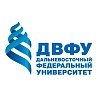Brian Yeung: Hong Kong is not Kiev, nor Donetsk
In
Log in if you are already registered
Protesters are unarmed. They have no self-defense force. What they have is an umbrella – for the sun, for the rain, and perhaps for the tear gas.
Protesters demand universal suffrage, a genuine one, which is promised by Hong Kong Basic Law Article 45. They are neither overthrowing the current system nor the government; they ask for a genuine implementation of the constitution. So umbrella movement is a demonstration; not a revolution.
Protesters threaten to occupy government building but what they actually mean is to gather around the building. Ask yourself: can you break through security lines and occupy government building with just an umbrella?
Protesters are unlikely funded by foreign governments unless you question why every protester can afford an umbrella.
I once compared the protests in Hong Kong to Kiev when I saw the images on media and I was still in Europe. When I came back from Hong Kong on 1st October, I felt an unusual atmosphere lingering in the air. It was China’s National Day.
The news showed scholarism students protesting at the National Day ceremony while senior officials including chief executive CY Leung toasting the occasion. In the airport, there was announcement that some unexpected incidents were in Kowloon and Hong Kong area. The occasion and the city’s atmosphere were at odds.
The day after I went to the protest area in Admiralty for the first time. Unlike the images I saw in Europe, the protests appeared peaceful and in order. Some restaurant owners donated food and water to show support. Some gave umbrella for free because of the unstable weather conditions. I even saw a protester providing tutorials for students who were on strike.
There was a wall full of memo papers and each paper told the story of a protester why he or she was here. Many showed affection to the city. I asked a young protester why he was here to protest and whether he wanted Chief Executive C.Y. Leung to step down. He said: “I am here to demand a genuine universal suffrage. I personally don’t like C.Y. Leung but whether he steps down or not should not be the focus of this movement.”
However, some student quarters among the protesters did ask the city’s Chief Executive to resign before midnight. In the evening, C.Y. Leung told media that he refused to resign but delegated Chief Secretary Carrie Lam to engage student protest leaders.
Despite a positive turn between the government and the protesters, the umbrella movement has turned into some violence the next day. But neither protesters nor police force used violence. A group of thugs punched and kicked protesters last night and attempted to force them out. A middle-aged man molested female protesters and shouted at them: “When you come out to protest, you should expect being molested.”
Who is to blame?
Should we blame the protest for not expecting being punched or molested when they protest on the streets? Should we blame the thugs who punched and kicked protesters? Many of us blame the police.
Hong Kong police takes pride in being “Asia’s finest” but images of police firing tear gas against unarmed protesters a few days ago shocked the world.What shocks us, who used to take pride in having “Asia’s finest police”, is that some policemen turned a blind eye on the thugs with a slogan of “anti-occupy movement”.
Image of an injured pro-democracy protester is widely circulated among media and Internet today. But what is not shown includes:
(1) cops escorting thugs to the taxi after they have assaulted protesters;
(2) handcuffing a protesters-beating man in front of the crowd and then releasing him in the metro;
(3) a cop shouting “we are all a family” when protesters confronted him on why he didn't do something against thugs who got aggressive against protesters.
However, it is true that not everyone supports the “Occupied Movement”. Some blame the protests for being “unlawful” and “causing economic loss”, such as the fall of the stock market and many closed shops around the protest areas.
Some question whether the movement is effective or counterproductive – are protests and pressure from the world the best way to ask National People's Congress to revise its proposal on the next chief executive election? I am not sure either.
That said, no matter to protest in the streets or not, the majority of locals values democracy. Democracy is more than universal suffrage – it requires strong emphasis on “rule of law” and mature “civil society”, where allows different and sometimes contradictory viewpoints co-exist.
To reach consensus despite controversies, we need democracy. That is why Hong Kong should never lose our high standard of “rule of law” and never compromise on “semi-democratic system”. Democracy is something you either have or you don’t have – there is nothing in between.
I saw a person who tried to use violence against protesters in Admiralty. That person was surrounded by more than a hundred protesters but none of them used violence fought back except calling the police. At that moment, I saw a powerful sense of solidarity among the protesters and that has given the city something compelling to believe in.
Hong Kong might be losing its pride in having “Asia’s finest police force” after the umbrella movement. However, we take pride in having the world’s arguably most polite protesters ever.
Brian Yeung is Hong Kong-based independent journalist and writer, mr.brianyeung@gmail.com




